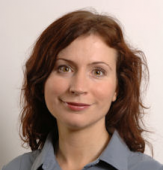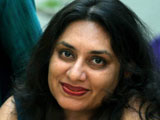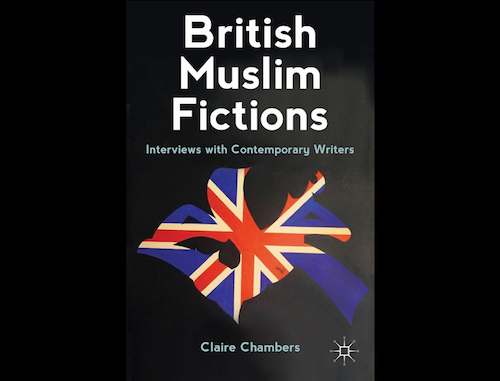Claire Chambers: British Muslim Fictions
by Sampsonia Way / December 24, 2012 / No comments
In light of the holiday season, Sampsonia Way asked our Fearless Ink. columnists for three reading recommendations. They chose books that have inspired, influenced, or enriched them and we are publishing an excerpt of one of their suggestions. To see all the recommendations made by the columnists, check the Holiday Recommendations factbox below!
Below is an excerpt from the introduction of Claire Chambers’ book British Muslim Fictions: Interviews with Contemporary Writers, recommended by Fearless Ink. columnist Bina Shah. The book, published by Palgrave Macmillan in 2011, is comprised of a series of interviews with Muslim writers living in Britain, including Tariq Ali, Ahdaf Soueif, Hanif Kureishi, and Abdulrazak Gurnah.
Introduction
Background
This book of interviews with writers of Muslim heritage is the first in a two-book project, to be followed by a monograph on artistic representations of British Muslims, 1966—present. In terms of the selection criteria for this book, the interviewed writers are resident in the UK, of Muslim heritage, and have produced literary fiction in English widely considered to be high quality and influential. The second book focuses on representations of Muslims by writers who are often, but not necessarily, of Muslim heritage. Both books analyse the term ‘Muslim writing’, which has recently come into currency, in order to complicate and contest it.
- Claire Chambers

- Claire Chambers is a Senior Lecturer in English Literature at Leeds Metropolitan University, UK, and is an expert in contemporary South Asian writing in English and literary representations of British Muslims. Her research has been supported by grants from HEFCE, the AHRC and British Academy. She has published widely in such journals as Postcolonial Text, Crossings and Contemporary Women’s Writing, and is Coeditor of the Journal of Commonwealth Literature.
There has long existed high demand for author interviews as resources to supplementing understanding of contemporary literature. Three recent volumes of interviews illustrate this point: Susheila Nasta’s edited volume Writing Across Worlds which contains interviews with writers broadly considered ‘postcolonial’; Philip Tew, Fiona Tolan, and Leigh Wilson’s collection of interviews with specifically British, but mostly White and Christian/secular writers, Writers Talk; and The Big Bookshelf, an anthology of thirty interview transcripts from Sunil Sethi’s Indian television show, Just Books. However, my book differs from these collections, given its exclusive focus on writers with Muslim backgrounds in Britain and beyond. This is important because their excellent writing, while rarely discussed in relation to religious identities, is increasingly gaining recognition from critics, literary prize boards, and research students. The volume is also distinct from the first two in that all interviews are conducted by me as the single researcher.
In recent years there has also emerged great interest in sociological interviews with British Muslims in order to shed light on communities that are marginalized and little-known beyond the stereotypes. For me, the most important of the many books in this area are Philip Lewis’s Young, British and Muslim and Anshuman A. Mondal’s Young British Muslim Voices. Despite their similar titles and publication within a year of each other in 2007 and 2008 respectively, they put the interview format to different use. Lewis presents his interviews (with both well-known and unfamiliar young Muslims) alongside readings of novels such as Hanif Kureishi’s The Black Album and Zahid Hussain’s The Cony Mile, discussion of intergenerational tensions and biradiri networks, and analysis of Muslim websites, mailing lists, and magazines. Mondal uses the interview format more extensively, talking to young, practising Muslims from many walks of life, and presenting their arguments within a journalistic, self -reflexive framework. His main, insightful conclusions are, firstly, that younger Muslims tend to be more religious than their parents and that this is creating conflict between the generations. Secondly, and contrary to the stereotypes, Mondal argues that despite many young Muslims articulating oppositional politics, they are not disengaged from society, with far more of them doing voluntary community work than non -Muslims of the same age. He concludes, ‘Principally, I have learned to speak of Muslims rather than Islam.’ This is also a maxim I have drawn from my interviews with writers of Muslim heritage, especially given the heterogeneity to be explored shortly. My interviews differ from these two important monographs because, rather than excerpting respondents’ comments amid sociological discussion, I provide edited interview transcripts in order to project their voices as fully as possible.
- Shah’s Recommendations

- Holiday Recommendations
- –British Muslim Fictions by Claire Chambers
- –Pakistan: A Hard Country by Anatol Lieven
- –The Forty Rules of Love by Elif Shafak
- Bina Shah is a Karachi-based journalist and fiction writer and has taught writing at the university level. She is the author of four novels and two collections of short stories. She is a columnist for two major English-language newspapers in Pakistan, The Dawn and The Express Tribune, and she has contributed to international newspapers including The Independent, The Guardian, and The International Herald Tribune. She is an alumnus of the International Writers Workshop (IWP 2011).
Especially since the 1980s, feminist, postcolonial, and Critical Race Theory scholars have directed attention towards methodological and ethical concerns when conducting research on, with, and for Others, whether these be othered through race, gender, class, or a combination of these. My own PhD thesis on the Bengali author Amitav Ghosh was grounded on the theories of Foucault, Said, Bhabha, and others, to the effect that knowledge is something that society ‘produces’. As Said points out repeatedly in his work, knowledge is not culturally transcendent, but is often deeply dependent on the political and economic processes of colonialism and now neo-colonialism/ globalization. In our awareness of the imbrication of knowledge in power structures, we need to situate the researcher in the process of knowledge production. As such, and despite all efforts to ensure openness and probity in the interviews, there are still ethical issues in representing cultures and religions that are not, narrowly speaking, my own. My research into British Muslims in contemporary society and cultural representations is shaped by my locatedness as someone who grew up in a British Asian Muslim milieu in Leeds. As clichéd as it may sound, my worldview has also been crucially shaped by my gap year, 1993-4, which I spent teaching English in Peshawar, Pakistan, at the age of 18. I went on to specialize in South Asian literature in English as a postgraduate and continue to fuel my interest by return visits to the region and by engagement work with diasporic communities.
A turning point for me, as a Yorkshirewoman of Northern Irish heritage, came when news of the London bombers’ identity broke in 2005. I was in Canada at the time and people kept asking about my city of Leeds in West Yorkshire, where it emerged that three of the four bombers also lived. Even though I had grown up with many Asians and Muslims and had lived in Pakistan, the people I knew tended to be from an elite or middle-class background and so I’d been unaware that in a place like Beeston in South Leeds there existed such politicized rage among a tiny minority of Muslims. It goes without saying that I and all the interviewees would condemn as horrific the violent, nihilistic path the bombers chose. A desire better to understand the range of issues facing Muslims in the UK led me to embark on this two -book research project, which is inflected with a sense of regional, northern English identity.
Excerpt from British Muslim Fictions: Interviews with Contemporary Writers, by Claire Chambers, Palgrave Macmillan, 2011. Reproduced with permission of Palgrave Macmillan.





